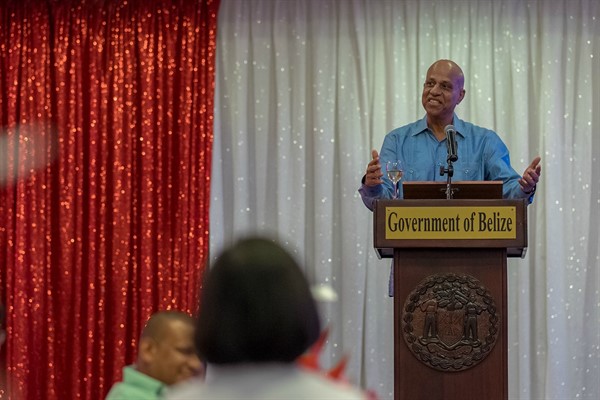At the beginning of 2020, Belize’s ruling center-right United Democratic Party was well-positioned for the general election in November. The economy, while not spectacular, was growing at a stable rate. Inflation was low, and the country’s external debt situation was under control. Prime Minister Dean Barrow had led the UDP to an unprecedented three consecutive election victories since 2008, and was generally popular among Belizeans. Barrow is term-limited by the constitution, but his favored candidate to succeed him, National Security Minister John Saldivar, was elected as leader of the UDP at a party convention in February. With 19 of the 31 seats in the House of Representatives, the UDP had an excellent chance of maintaining its majority in the Nov. 11 polls.
However, what initially looked like a smooth campaign season for the ruling party was quickly upended by corruption allegations. Just days after Saldivar’s victory in the party leadership race, he was implicated in a U.S. federal fraud trial in Utah, involving a conspiracy to obtain biofuel tax credits on false pretenses. A witness in the case said that he saw the alleged ringleader of the scheme, Lev Aslan Dermen, pay bundles of cash to Saldivar in $10,000 increments, apparently in exchange for Saldivar promising to give Dermen a Belizean passport. The explosive testimony forced Saldivar to resign as head of the UDP and from Barrow’s Cabinet.
That came on the heels of another damaging development for the ruling party. In January, the Belizean Supreme Court ruled that Barrow’s government had spent more than 1.3 billion Belize dollars—roughly $645 million—of public funds without prior approval from parliament, in violation of the constitution and the Finance and Audit Reform Act. That is a significant amount for the small Central American country, which has a GDP of just under $2 billion. Some of the funds in question were from PetroCaribe, a Venezuelan aid program that provides discounted oil to participating countries in the region.

